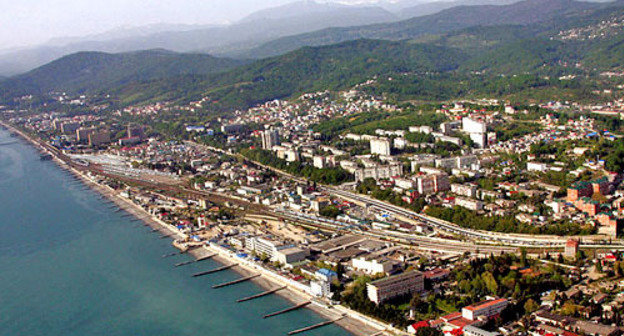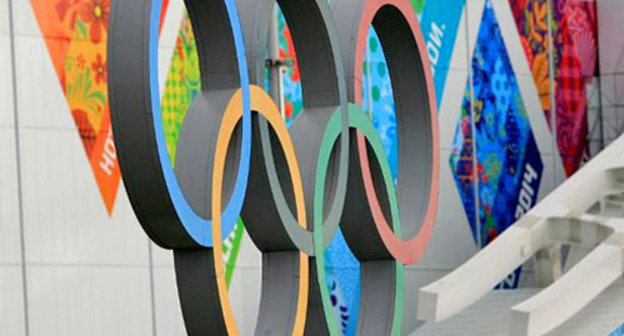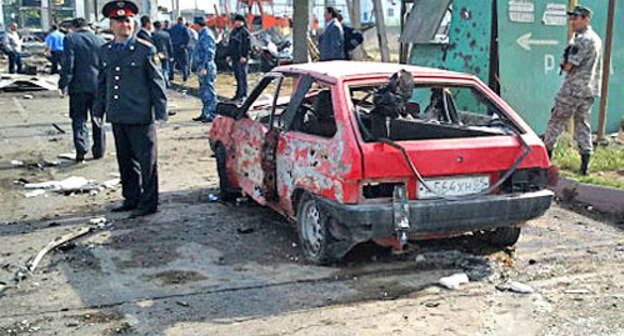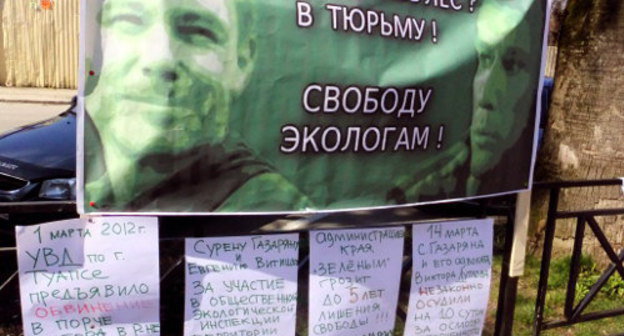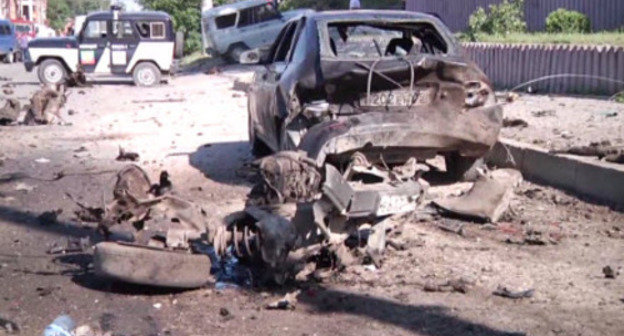20:17, 12 February 2014
Sochi Olympics: environmental problems
The "Caucasian Knot" has compiled a set of most serious environmental problems associated with the Olympic Games in Sochi. The below chronology is based on the materials of the "Caucasian Knot" correspondents for the period from 2006 to 2013.
19:15, 16 January 2014
Olympic Games in Sochi: Contacts for the Media
The 2014 Winter Olympic Games and the city of Sochi are more and more often an object of attention of Russian and foreign mass media. Journalists try to get information about what happens in the city not only from official sources, but also from civil society activists. In order to help our Russian and foreign colleagues, the editorial board of the "Caucasian Knot" hereby presents a brief directory with contact data of independent Sochi activists, lawyers, ecologists and politicians, who are ready to communicate with media people. The directory also provides contacts of the city and territorial officials and power bodies.
19:10, 20 December 2013
Persecutions of civil society activists in Krasnodar and Sochi
In 2013, in the Krasnodar Territory, a broad range of civil and political activists were persecuted by local authorities. The pretexts were the campaign launched by the authorities to tighten control over non-profit organizations (NPOs) and the growing social tension related to the upcoming Olympic Games in Sochi. The "Caucasian Knot" has compiled the most notable cases of pressure on activists in Krasnodar and Sochi.
22:18, 22 September 2003
Muslim ethic
This is a set of rules and morals that guide Muslims in their everyday life. Like a lot in the Muslim world, the Muslim ethic is primarily based on the Koran and Sunnah.
22:14, 22 September 2003
Muslim holidays
These are holidays traditionally celebrated by Muslims. The most important of them are common to the entire Muslim world.
22:11, 22 September 2003
Muslim rituals
Muslim rituals reflect Muslim beliefs and serve as a basis for the Islamic cult. The most important of them are common to the entire Muslim world.
22:06, 22 September 2003
Russian Council of Muftis
The organization unites heads of Muslim spiritual boards around the country. This is done for coordination of their activities; a board remains entirely independent when its leader joins the Council.
22:02, 22 September 2003
Union of Russian Muslims
Like other contemporary successful Muslim movements in Russia, the Union of Russian Muslims is quite moderate in its platform. Since its leader was arrested its activity has remarkably fell though.
21:54, 22 September 2003
Nur, Muslim movement
Nur is a broad-based Muslim socio-political movement in Russia. Its moderate, but consistent platform allows it to enjoy increasing support of the Muslim public around the country.
21:48, 22 September 2003
Islamic socio-political movements in Russia
The Muslim renaissance brought about by the break-up of the USSR has led to the emergence of a number of Muslim movements in Russia. Some of them have already left the scene, while others are still developing.
21:39, 22 September 2003
Battle for Caucasus
The Battle for the Caucasus is a series of military operations in the N. Caucasus conducted by the Armed Forces of Russia and Nazi Germany. It began on July 25, 1942, and ended on October 9, 1943.
21:29, 22 September 2003
Borga Kash
Borga Kash is the earliest of the surviving Muslim monuments in Ingushetia. It was built in 1405-06 in honor of a certain Bek-Sultan and since then has become a very revered place.
21:20, 22 September 2003
Islam in Russia
Islam is the second religion in the number of adherents in Russia. The Muslim community has survived the Russian Empire and Soviet government and is now going through a renaissance.
20:17, 7 September 2003
Khushtada ziyarat
The Khushtada ziyarat is the "holy" grave of three Naqshbandi sheikhs of the XIX-XX centuries, evidence of the cult of "holy" martyrs among the Muslims in Soviet and present-day Dagestan.
20:12, 7 September 2003
Azov sitting
In 1637, a relatively small Cossack company took the powerful Turkish fortress of Azov and held it until 1642, having withstood a serious siege. This striking event was reflected in tales of the XVII cent. Azov siege sitting.

